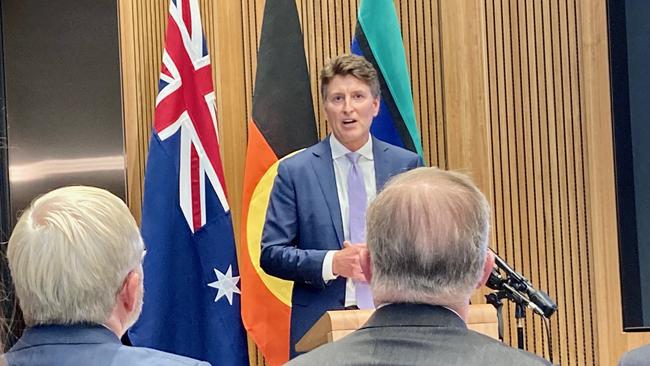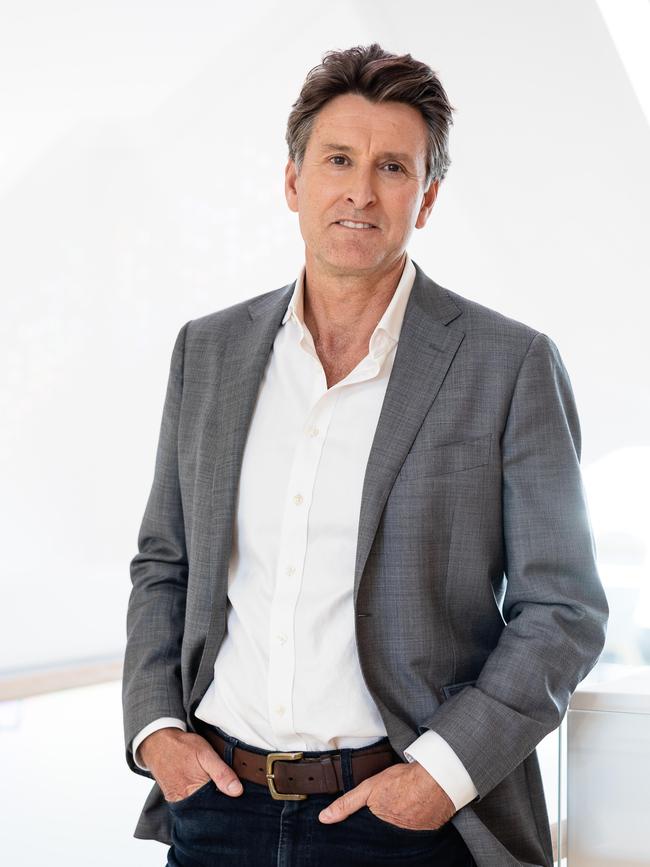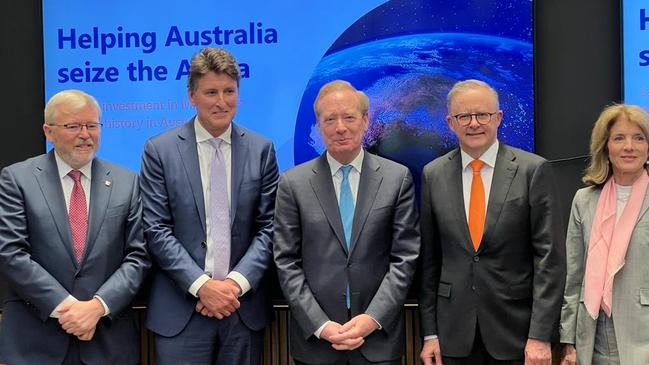Microsoft turns to TAFE to help fill 300,000 tech job shortfall and prevent Optus-style cyber attacks
Universities alone can’t deliver the hundreds of thousands of tech jobs Australia needs by 2030, prompting Microsoft to partner with TAFE and others to create ‘bite-sized’ upskilling.

Microsoft is tapping the TAFE sector to help fill the 300,000 shortfall in tech jobs Australia will need by the end of the decade, saying that the country’s universities alone can’t meet surging demand.
The US tech behemoth has committed to train an extra 300,000 students to “succeed in the digital economy” via its global skills program and in a collaboration with TAFE NSW after it unveiled a $5bn data centre and cybersecurity investment in Australia.
Microsoft Australia New Zealand managing director Steven Worrall said the training was an essential part of the investment and partnering with TAFE and advocating more micro-credentials would allow Australians to take “bite-sized approaches” in gaining tech qualifications.
It comes as Australia is facing a national security crisis as the proportion of high school students studying advanced maths has plummeted to an all-time low, with education experts warning the country risks not being able to defend itself fully against escalating cyber assaults.
Already, some of Australia’s biggest companies have been the target of cyber attacks – including Medibank, Optus and Latitude Financial – with hacks also increasingly becoming a tactic of conventional warfare, as experienced in Ukraine and Israel/Gaza conflicts.
This means more of Australians’ sensitive data risks being accessed by cyber criminals and ransomed, and if companies don’t pay up – which governments advise them not to do – being leaked on the dark web and elsewhere.

“The Tech Council of Australia has told us that, by 2030, we should have 1.2 million workers in the tech sector,” Mr Worrall said. “Today there’s about 875,000 and we know that in our universities … there are about 6000 (STEM qualified graduates) a year in total.
“We’re not going to fill those roles by simply looking at the traditional pipeline of traditional pathways. So, our Global Skills program democratises access to skills that relate to AI and machine learning, cyber (security) so more and more people can upskill and get a foot on the ladder to get into the tech sector.”
Despite most of the world’s most valuable companies operating in the tech sector, there has been a resistance to studying STEM or science, technology, engineering and mathematics. According to the Australian Mathematical Sciences Institute the number of year 12 students enrolled in one or more maths subjects has dived from an average of 71-73 per cent to 66 per cent. But tech companies are partly to blame for the dearth of STEM graduates.
Citing Accenture research commissioned by Microsoft, Mr Worrall said companies were filtering out potentially high-performing candidates, with 90 per cent of job advertisements for STEM roles stipulating a bachelor’s degree or higher qualification. “We screen out too much talent before they understand or have an opportunity to progress further,” he said. “We know for STEM-related graduates in the country one in three women, one in 20 have a disability and one in 100 have a First Nations background. So, well before a woman or someone with a disability or First Nations candidate has ever got to the front door of the university … they’d been screened out because the opportunity wasn’t provided, because they didn’t see enough role models, because they didn’t think it was for them.
“We need to continue to grapple with (this problem) as a nation so that we can transform our economy and ensure that more and more people can get into the sector over time.”

Mr Worrall said partnering with TAFE allowed people to gain qualifications in a shorter time frame, often while continuing to work in their existing jobs, to gain career advancement.
“Tech is a vertical but it’s also a horizontal, and so there are tech roles in every organisation. And so, imagine somebody who is not in a tech-dependent role today who would like to go into tech but they might have a family, they might be mid-career, the chances that they’re going to say, ‘That’s cool, I’ll take three years out to do a bachelor’s degree,’ I mean, it doesn’t happen. It’s a massive obstacle.
“So it’s these micro-credentials, these new pathways, that allow people to do part-time study, take bite-sized approaches to pick up the exact skills that they need for that next step. And we’re working very hard with our partners across the sector to create those new pathways.”
Microsoft will also collaborate with the Australian Signals Directorate to strengthen Australia’s cyber defences, developing a MACS, which stands for Microsoft-Australian Signals Directorate Cyber Shield.
“Leveraging knowledge of industry, in this case to complement and supplement the government‘s defences, makes a lot of sense,” Mr Worrall said.
“Cyber is continuing to be an attack vector in other ways as well. In Ukraine, a very public example, we’ve seen over the years, very clearly directed state-based activity to destabilise the regime … and be the precursor to a range of other activities.”
Anthony Albanese praised Microsoft’s investment and partnership with TAFE NSW, which will involve the creation of a data centre academy, that will take enrolments from early 2024 and train 200 students in its first two years of operating.
“A priority for my government is to ensure all Australians benefit from economic growth. This means that we need to provide the skills to enable Australians to succeed in the jobs of the future,” the Prime Minister said.


To join the conversation, please log in. Don't have an account? Register
Join the conversation, you are commenting as Logout